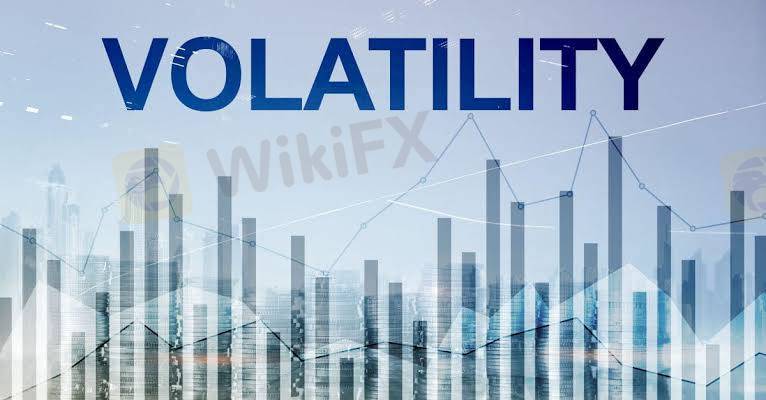
2025-02-12 00:54
IndustryForex And Exchange Rate Volatility
#firstdealoftheneeyearastylz
Forex and exchange rate volatility are closely linked. Exchange rate volatility refers to the fluctuations in the value of a currency relative to another currency. Forex trading involves buying and selling currencies, and exchange rate volatility can significantly impact trading decisions and outcomes.
Causes of Exchange Rate Volatility:
1. Economic indicators: Changes in economic indicators such as GDP, inflation, and employment rates can impact exchange rates.
2. Central bank policies: Changes in central bank policies, including interest rates and quantitative easing, can impact exchange rates.
3. Geopolitical events: Events such as wars, elections, and trade agreements can impact exchange rates.
4. Market sentiment: Changes in market sentiment, including investor attitudes and expectations, can impact exchange rates.
Effects of Exchange Rate Volatility on Forex Trading:
1. Increased risk: Exchange rate volatility can increase the risk of Forex trading, as rapid changes in exchange rates can result in significant losses.
2. Trading opportunities: Exchange rate volatility can also create trading opportunities, as traders can profit from fluctuations in exchange rates.
3. Difficulty in predicting prices: Exchange rate volatility can make it challenging to predict prices, as exchange rates can change rapidly and unpredictably.
Strategies to Manage Exchange Rate Volatility:
1. Diversification: Diversifying a Forex portfolio can help reduce exposure to exchange rate volatility.
2. Hedging: Hedging strategies, such as stop-loss orders and limit orders, can help manage risk and reduce exposure to exchange rate volatility.
3. Technical analysis: Technical analysis can help traders identify trends and patterns in exchange rates, which can inform trading decisions.
4. Fundamental analysis: Fundamental analysis can help traders understand the underlying factors driving exchange rates, which can inform trading decisions.
Overall, exchange rate volatility is a natural aspect of Forex trading, and traders must be prepared to manage and adapt to changing market conditions.
Like 0

Odogwu920
Broker
Hot content
Industry
Event-A comment a day,Keep rewards worthy up to$27
Industry
Nigeria Event Giveaway-Win₦5000 Mobilephone Credit
Industry
Nigeria Event Giveaway-Win ₦2500 MobilePhoneCredit
Industry
South Africa Event-Come&Win 240ZAR Phone Credit
Industry
Nigeria Event-Discuss Forex&Win2500NGN PhoneCredit
Industry
[Nigeria Event]Discuss&win 2500 Naira Phone Credit
Forum category

Platform

Exhibition

Agent

Recruitment

EA

Industry

Market

Index
Forex And Exchange Rate Volatility
 Hong Kong | 2025-02-12 00:54
Hong Kong | 2025-02-12 00:54#firstdealoftheneeyearastylz
Forex and exchange rate volatility are closely linked. Exchange rate volatility refers to the fluctuations in the value of a currency relative to another currency. Forex trading involves buying and selling currencies, and exchange rate volatility can significantly impact trading decisions and outcomes.
Causes of Exchange Rate Volatility:
1. Economic indicators: Changes in economic indicators such as GDP, inflation, and employment rates can impact exchange rates.
2. Central bank policies: Changes in central bank policies, including interest rates and quantitative easing, can impact exchange rates.
3. Geopolitical events: Events such as wars, elections, and trade agreements can impact exchange rates.
4. Market sentiment: Changes in market sentiment, including investor attitudes and expectations, can impact exchange rates.
Effects of Exchange Rate Volatility on Forex Trading:
1. Increased risk: Exchange rate volatility can increase the risk of Forex trading, as rapid changes in exchange rates can result in significant losses.
2. Trading opportunities: Exchange rate volatility can also create trading opportunities, as traders can profit from fluctuations in exchange rates.
3. Difficulty in predicting prices: Exchange rate volatility can make it challenging to predict prices, as exchange rates can change rapidly and unpredictably.
Strategies to Manage Exchange Rate Volatility:
1. Diversification: Diversifying a Forex portfolio can help reduce exposure to exchange rate volatility.
2. Hedging: Hedging strategies, such as stop-loss orders and limit orders, can help manage risk and reduce exposure to exchange rate volatility.
3. Technical analysis: Technical analysis can help traders identify trends and patterns in exchange rates, which can inform trading decisions.
4. Fundamental analysis: Fundamental analysis can help traders understand the underlying factors driving exchange rates, which can inform trading decisions.
Overall, exchange rate volatility is a natural aspect of Forex trading, and traders must be prepared to manage and adapt to changing market conditions.
Like 0
I want to comment, too
Submit
0Comments

There is no comment yet. Make the first one.

Submit
There is no comment yet. Make the first one.